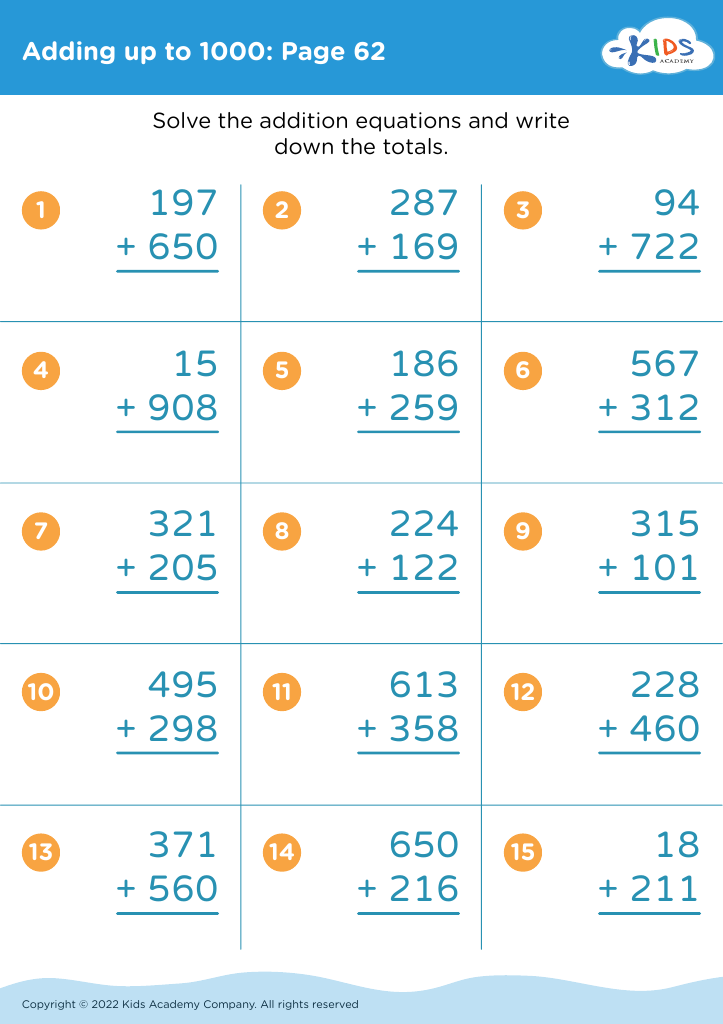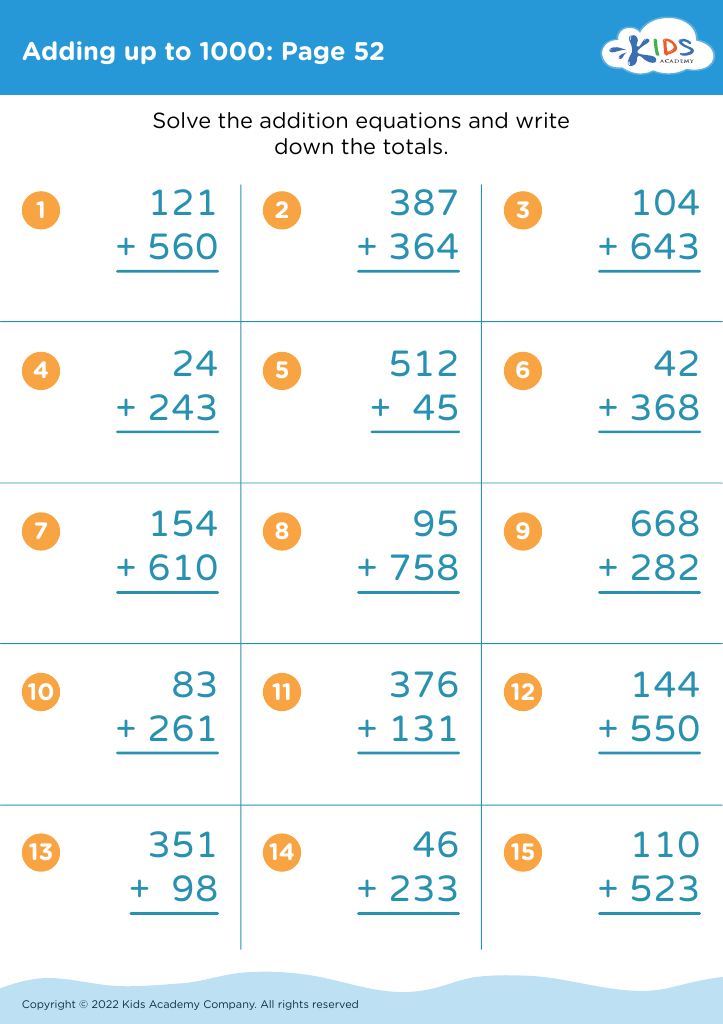Understand fractions Adding up to 1000 Misc Worksheets for Ages 4-7
3 filtered results
-
From - To
Introducing our "Understand Fractions Adding up to 1000 Misc Worksheets for Ages 4-7"! Specially designed for young learners, these worksheets inspire a strong foundation in fractions and addition up to 1000. The engaging activities simplify complex math concepts, accommodating diverse learning styles. Each worksheet combines fun illustrations with hands-on practice to enhance kids' understanding of fractions, ensuring they grasp the basics in an enjoyable way. Ideal for preschoolers and early elementary students, these resources promote confidence in math skills. Give your child a head start today with our expertly crafted worksheets!
Understanding fractions and numeric concepts early on provides a pivotal foundation for a child's future mathematical learning and everyday problem-solving skills. For children aged 4-7, grasping basic fractions (like halves and quarters) helps them comprehend that whole objects can be divided into equal parts. This understanding goes beyond academics; it introduces them to real-world situations such as sharing food, dividing chores, or collaborating in games, encouraging fair division and teamwork.
Addition leading up to 1,000 not only enhances their numerical fluency but also aids in cognitive development. By learning to add large numbers step by step, children develop their memory, mental math skills, and attention to detail. Parents and teachers focusing on this can help children become more confident in manipulating numbers, fostering a positive attitude toward mathematics.
Additionally, arithmetic—fractions included—bolsters logical reasoning and problem-solving aptitudes, essential skills for lifelong learning and day-to-day life. When adults invest time in making this learning fun and engaging for kids, it instills curiosity and a love for math that can spur academic success down the road. Thus, an early emphasis on these concepts is a fundamental step in nurturing well-rounded, mathematically literate children.













